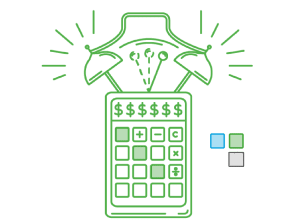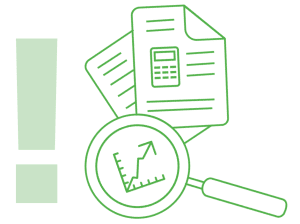From the article you will learn:
- What is the current practice of the Polish tax authorities regarding the correction of the VAT rate?
- What opportunities for taxpayers result from the CJEU judgment of 21 March 2024 (ref. no. C 606/22)?
- What must be reported to make VAT correction possible in the case of B2C sales?
The Court of Justice of the European Union, in its judgment of 21 March 2024 (ref. no. C 606/22), ruled that in the light of EU regulations, an entrepreneur has the right to correct sales taxed with an overstated VAT rate – also when such sales were made to consumers (in a B2C relationship) and the transaction was documented by the seller with a fiscal receipt.
Why was the correction of overstated VAT the subject of a dispute with the tax office?
The analysed judgment was based on the case of a fitness club which, in accordance with the unfavourable line of interpretation presented by the tax office, sold sports passes at a 23% VAT rate.
After the Minister of Finance issued a general interpretation allowing the taxation of passes at an 8% VAT rate, the taxpayer applied to the tax authority for a tax refund.
Until now, tax authorities in Poland have not been agreeing to correct an overstated VAT rate if the taxpayer made a sale to a consumer who received a receipt. For practical reasons, the buyer could not receive a refund resulting from the overstated purchase price of the goods or services due to an incorrectly applied VAT rate. In the opinion of the Polish tax authorities, a sales correction in such a situation would result in "unjust enrichment" of the seller.
The CJEU drew attention to the fact that despite the structure of VAT in which the tax burden is transferred to the final consumer, an entrepreneur who applies an overstated VAT rate may incur a loss due to a reduction in sales volume or profit margin. Such a seller is undoubtedly placed in a disadvantageous situation, especially compared to taxpayers who from the very beginning have been applying settlement rules allowing them to apply a reduced VAT rate.
The court indicated that the tax authority may raise the objection of unjust enrichment, but only after conducting an economic analysis, and not automatically, only due to the fact that the sale was documented with a receipt.
For this reason, in the opinion of the EU tribunal, the practice of the Polish tax authorities is contrary to the principles of tax neutrality, effectiveness and equal treatment.
Learn more about tax advisory services
How may the CJEU judgment affect the VAT settlements of Polish taxpayers?
The judgment is a real chance to recover the overstated VAT paid by taxpayers in connection with sales made to consumers and documented with fiscal receipts. The ruling may be an effective argument for sellers entering into a dispute with the tax authority regarding VAT corrections. However, it is worth remembering that – in the light of the CJEU's guidelines – the taxpayer should clearly demonstrate that due to the application of an incorrect VAT rate, they incurred a financial loss and the tax was not neutral for them.
If you are planning to correct sales made to consumers, write to our expert and find out how we can help your company.





